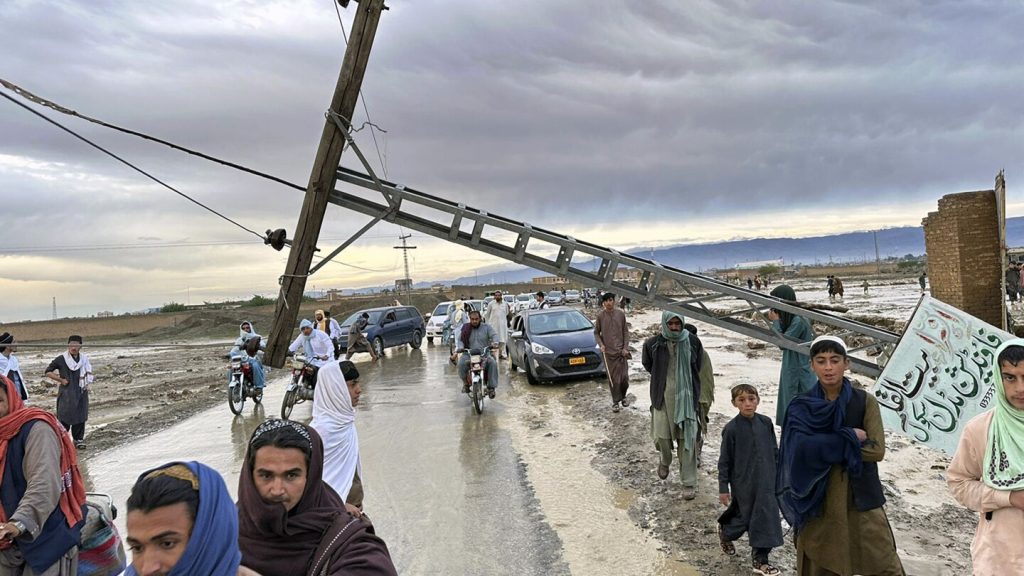Khyber Pakhtunkhwa, a Pakistani province, has issued a flood alert due to glacial melting, warning of potential heavy loss of life if safety measures are not taken. The country has been experiencing extreme weather conditions, leading to casualties and destruction of property and farmland. Experts attribute the heavier rains in April to climate change, with the mountainous northwest province being particularly affected. Authorities have urged people to move to safer locations to avoid harm as glaciers continue to melt in several districts, potentially worsening the flood situation.
In the past five days, 59 people, including 33 children, have lost their lives due to rain-related incidents in Khyber Pakhtunkhwa. Additionally, 2,875 houses and 26 schools have either collapsed or been damaged, highlighting the devastating impact of the extreme weather events. The province’s disaster management authority has emphasized the importance of timely safety measures to prevent further loss of life and property. With the threat of floods looming, swift action is necessary to ensure the safety and well-being of communities in the region.
The province of Baluchistan in southwest Pakistan has also been affected by heavy rainfall, straining its limited resources for managing the situation. If the rains persist, the province may seek assistance from the central government to cope with the challenges posed by the extreme weather. In 2022, similar weather events caused widespread flooding in Pakistan, resulting in significant loss of life and damage amounting to $30 billion. With the monsoon season approaching in June, authorities are gearing up to mitigate the impact of potential floods and ensure the safety of vulnerable populations in the country.
The ongoing climate crisis has intensified the frequency and severity of extreme weather events in Pakistan, posing a significant threat to the population’s livelihoods and infrastructure. The melting of glaciers and heavy rainfall have led to devastating consequences, underscoring the urgent need for comprehensive disaster preparedness and response measures. Authorities are working to raise awareness about the risks associated with climate change and the importance of implementing sustainable mitigation strategies to build resilience against future disasters. As the country braces for the monsoon season, a coordinated effort is required to protect lives and minimize the impact of natural disasters on communities across Pakistan.
The recent spate of extreme weather events in Pakistan serves as a stark reminder of the escalating climate crisis and its detrimental effects on vulnerable populations. With glacial melting contributing to floods and landslides, there is a pressing need to prioritize environmental conservation and sustainable development practices to mitigate the impact of climate change. The government, in collaboration with local authorities and international partners, must work towards implementing policies and programs that address the root causes of environmental degradation and promote resilience to climate-related disasters. By adopting a holistic approach to climate action, Pakistan can safeguard its people and ecosystems against the adverse effects of global warming and ensure a sustainable future for generations to come.
As the threat of flooding looms large in Khyber Pakhtunkhwa and other parts of Pakistan, immediate action is essential to protect lives and property from the devastating impact of extreme weather events. Building community resilience, investing in early warning systems, and implementing sustainable disaster risk reduction strategies are crucial steps in mitigating the risks posed by climate change-induced disasters. By prioritizing climate adaptation and disaster preparedness, Pakistan can enhance its capacity to respond to emergencies effectively and safeguard its population from the escalating impacts of global warming. Collaboration between government agencies, civil society organizations, and the private sector is key to developing robust policies and initiatives that promote sustainable development and climate resilience in the face of growing environmental challenges.


